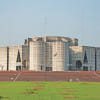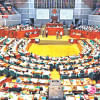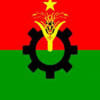Digital Security Bill: JS body finalises report
A parliamentary body yesterday finalised its report on the much-debated Digital Security Bill without addressing some concerns of journalists and media owners.
The committee, however, recommended several changes that include renaming the offence of “computer or digital spying” as “violating state secrecy” under section 32 and incorporating Official Secrets Act, 1923.
Scrutinising the bill, the standing committee on post, telecom and ICT ministry also suggested inclusion of the definition of “spirit of Liberation War” in line with the constitution to tackle propaganda against the 1971 war and its ideals.
The parliamentary body ignored journalists' concerns on sections 8, 28, 29 and 31 that deal with hurting religious values, disrupting public order, dishing out defaming information and causing law and order deterioration through publishing anything in website or electronic form.
On July 4, the committee at a meeting with Editors' Council, Bangladesh Federal Union of Journalists (BFUJ) and Association of Television Channel Owners (ATCO) placed an 11-point change to the proposed Digital Security Act for their consideration.
Representatives of the three organisations told the committee that they will share their opinions on the changes later, following discussions in respective forums.
The House committee set July 16 for further discussion with the organisations on the bill. But the meeting was postponed and no fresh date was announced afterwards.
Earlier on May 22, it invited presidents and general secretaries of the Editors' Council and BFUJ and president and senior vice president of ATCO to a meeting to hear their views.
At the meeting, the three organisations voiced concerns over sections 8, 21, 25, 28, 29, 31, 32, and 43, saying these would greatly hamper the freedom of speech and independent journalism.
The Editors' Council, an organisation of the country's dailies, also placed a written proposal regarding the eight sections.
The committee in its report recommended changes to sections 21, 25, 32 and 43, among others.
The Digital Security Bill, 2018 was placed in parliament on April 9 amid growing concerns among journalists and rights activists that freedom of the press and expression would be seriously jeopardised if the bill was passed as it was.
The committee was given four weeks to place its report before parliament following scrutiny of the bill. The House on June 7 extended the time limit by two months and on September 10 by another month.
Contacted last night, Naem Nizam, editor of the daily Bangladesh Pratidin, said it's not fair that the committee finalised its report without addressing the concerns of journalists.
Imran Ahmed, a ruling Awami League MP and chief of the standing committee, said they have finalised the report with 16 changes in the light of the concerns expressed by senior journalists.
Talking to reporters at his office in the Jatiya Sangsad yesterday, he also said the committee is likely to place its report in the ongoing parliament session scheduled to continue till September 20.
SOME PROPOSED CHANGES
The committee recommended replacing the title of section 32 -- “crime and punishment for computer and digital spying” -- with “crime and punishment for violating state secrecy”.
As per the recommendation, section 32 says if a person commits any crime or assist anyone in committing crimes under Official Secrets Act, 1923 through computer, digital device, computer network, digital network or any other electronic medium, s/he may face a maximum 14 years in jail or a fine of Tk 25 lakh or both.
The committee suggested reducing jail term and the amount of fine under sections 18, 21 and 28 that deal with illegal entry to computer and digital device, propaganda against the Liberation War and hurting religious sentiment.
On section 25, the committee recommended dropping a sub-section that says a person may face up to three years in jail or Tk 3 lakh in fine or both if he or she is found to have deliberately published or broadcast in a website or electronic form something which can make someone dishonest or disgruntled.
On section 5, the committee recommended inclusion of two directors to the Digital Security Agency alongside the director general. It also suggested inclusion of a representative of BFUJ to the Digital Security Council.
Regarding the concerns of journalists about section 43 that says a police official can search or arrest anyone without any warrant issued by a court, the committee suggested that police would carry out the job following the director general's approval.
However, the committee didn't address journalists' concern regarding section 28 that says a person may face up to seven years' imprisonment or Tk 10 lakh in fine or both if he or she is found to have deliberately published or broadcast something in a website or in electronic form or gets it done to hurt one's religious sentiment and values.
The committee also didn't say anything about sections 29 and 31.
Section 29 says a person may face up to three years in jail or a fine of Tk 5 lakh or both if he or she commits the offences stipulated in section 499 of the Penal Code through a website or in electronic form.
Section 31 says a person may face up to seven years in prison or Tk 5 lakh in fine or both if he or she is found to have deliberately published or broadcast something on a website or in electronic form which can spread hatred and create enmity among different groups and communities, and can cause deterioration of law and order.

 For all latest news, follow The Daily Star's Google News channel.
For all latest news, follow The Daily Star's Google News channel. 








Comments